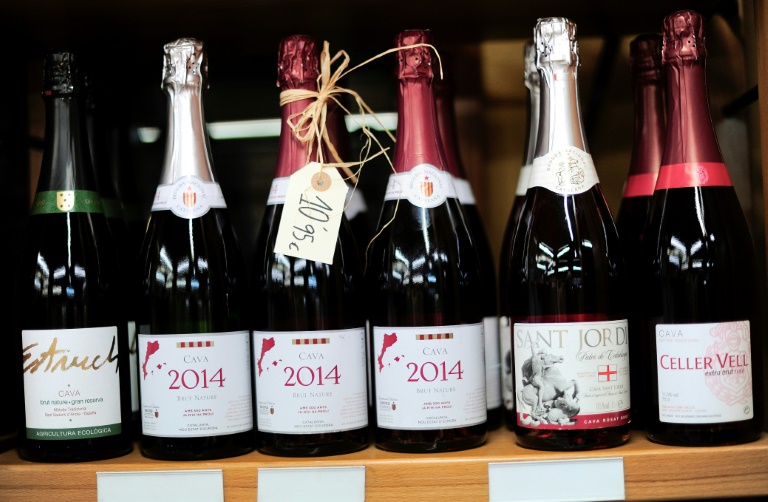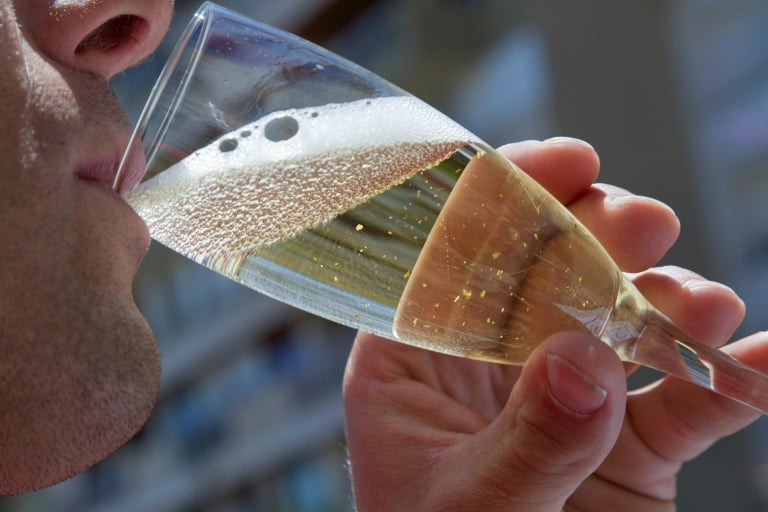Gemini 2.0: Everything new in Google’s new flagship AI model [VIDEO]
“You have to hit them where it hurts the most: the wallet,” a Twitter user wrote under the hashtag #boycottcatalanproducts.
“We Spaniards who do not want Spain to be broken up… we can take action by adopting dissuasive steps of an economic nature,” reads a Facebook page calling for consumers to snub Catalan products.
Appeals for a boycott have become more urgent since Catalonia’s separatist regional government held a banned independence referendum on October 1 in defiance of Spain’s central government and courts.
The campaign targets Catalonia’s key agriculture and food sectors, with consumers urged to shun cava, a sparkling wine, Estrella Damm beer, as well as Vichy Catalan and Font Vella bottled water.
Medicines are also on the list to hurt Catalonia’s important pharmaceutical sector, as well as cars made by Seat, German carmaker Volkswagen’s Spanish unit in the region.
Products made by foreign multinationals in Catalonia, including Nestle and Unilever, have also been swept up in the campaign.
Mobile phone applications help consumers identify which products come from the rebel region.
– Unclear impact –

A boycott campaign is targetting Catalonia’s key agriculture and food sectors, with consumers urged to shun cava, a sparkling wine, Estrella Damm beer, as well as Vichy Catalan and Font Vella bottled water.
The impact of the boycott campaign is hard to measure to date.
“We have had some clients who have bought less,” especially in Madrid, Rosa Rebula, a manager at cava producer Rosell i Formosa, told AFP.
But she said the company will only be able to confirm the trend in November — a peak period for sales of cava ahead of the Christmas holiday season.
Some clients made it very clear that they had stopped buying cava for political reasons, said Rebula.
The company suffered the effects of another boycott in 2004 after a Catalan politician opposed Madrid’s bid to host the 2012 Olympics.
That campaign “was very intense. And we never won back the majority of clients which we lost… the consequences could be serious this time as well,” said Rebula.
Freixenet, Spain’s biggest cava maker which is planning to move its headquarters out of Catalonia because of the uncertainty caused by the independence push, said it will only have sales figures by the end of the year.
Barcelona’s Chamber of Commerce and Catalan employers’ groups have not yet provided figures on the impact of the campaign.
-‘Shoot ourselves in foot’ –

While the impact of the boycott campaign is hard to measure, some customers have stopped buying cava for political reasons.
Several prominent figures have appealed for calm, including Josep Borrell, a former European Parliament vice president who is from Catalonia.
“The boycott must stop because the people who will be ruined by it will feel even more anti-Spain,” he said earlier this week.
Others have warned the boycott could do just as much harm to companies in the rest of Spain.
Many Catalan products use raw materials from other parts of the country, said Francisco Javier Peinado of a confederation representing businesses in the eastern region of Extremadura on the border with Portugal.
“Every time we boycott a Catalan product, we shoot ourselves in the foot,” he said in an interview with the El Pais newspaper.
Glass used to produce cava bottles comes from the northern province of Leon, and the cork stoppers from Extremadura, said Rebula.
“If they don’t buy anything, we also can’t buy” these products from suppliers, she said.
Some Catalan separatists have called for a boycott of hundreds of companies, especially major banks, that have moved their legal headquarters out of Catalonia in recent weeks.
Spain’s largest union, Comisiones Obreras (CCOO), slammed the appeal as “ridiculous and counterproductive”, and warned it could cost jobs.
Even Catalonia’s regional government criticised the campaign.
“Putting the economy in danger is always an own-goal,” Catalonia’s business minister, Santi Vila, tweeted.
Download our app and read this and other great stories on the move. Available for Android and iOS.